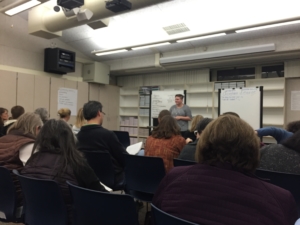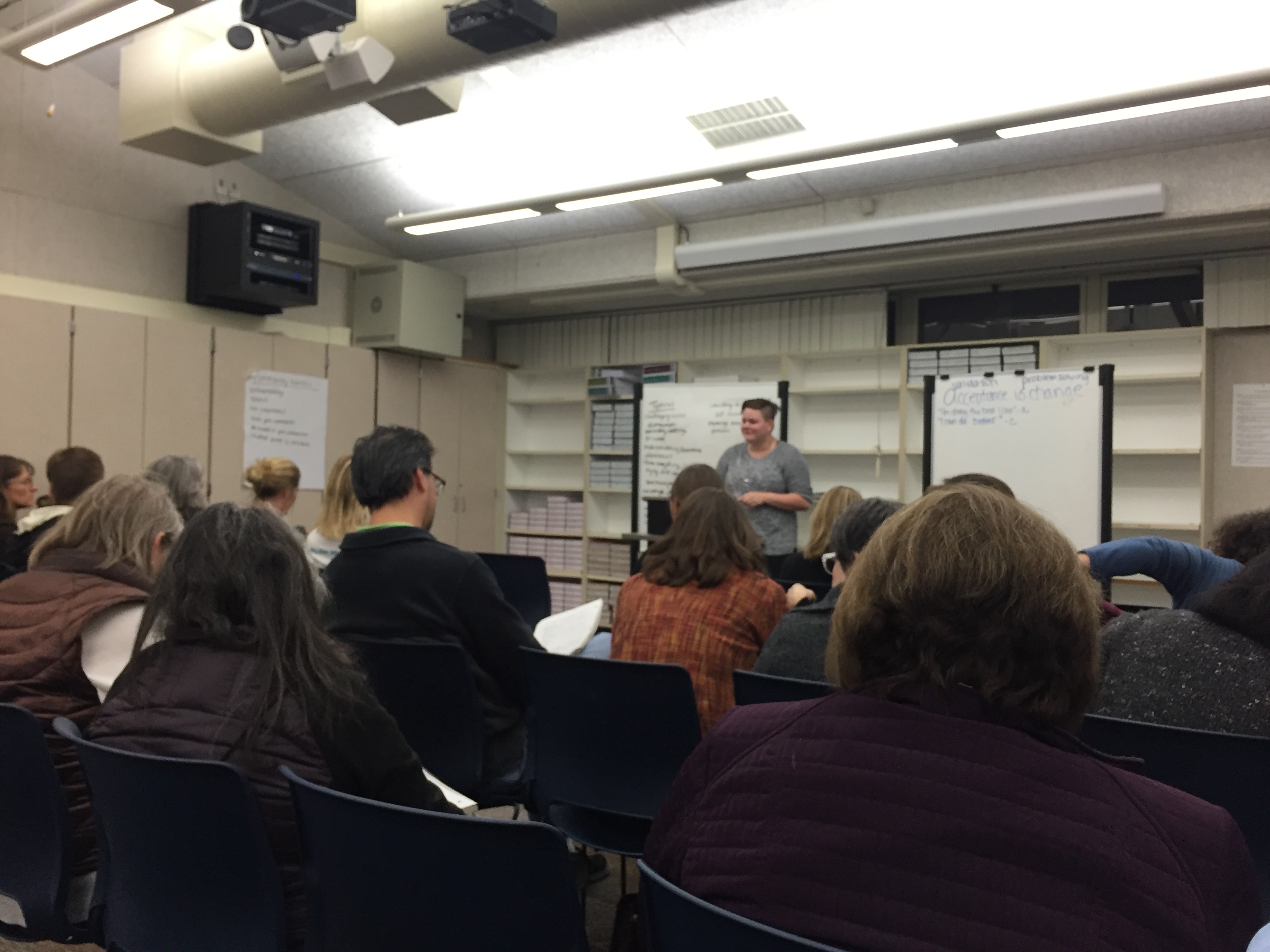The Compassion Project gives advice on depression

By Claire Williams,
BlueDevilHUB.com Staff–
It’s 7:30 p.m. at Da Vinci High School. Parents begin lining up outside a classroom, signing in to The Compassion Project’s first meeting.
After a brief introduction, high school senior Jocelyn Cavins, the creator of The Compassion Project, begins the meeting. Cavins begins by saying that the purpose of The Compassion Project is to further educate parents about issues surrounding depression that affect teens and how parents can help their teens cope.
Cavins, who started the Compassion Project as her Girl Scout Gold Award project, did it because she wanted to give back to her community and raise awareness about mental health issues affecting teens.
Next, Erin Auvinen, a counselor from the Auburn-Davis Center for Dialectical Behavioral Therapy (DBT), walks to the front of the room to begin educating the parents about depression. She begins her presentation with a wide smile, thanking the crowd for their attendance.
Throughout the workshop, Auvinen educated the parents on typical and atypical behaviors in teens and what to look out for.
“Behavior that might seem atypical to you might seem typical to someone else,” Auvinen said.
Auvinen also discussed emotion dysregulation, the imbalance of the physiological and psychological process, and how parents can help teens from becoming dysregulated in the future.
“If it comes to the point where [a teen] can’t find their own identity or purpose, this could disrupt them and cause dysregulation,” Auvinen said.
Auvinen suggested that school can often be a source of dysregulation for young people.
According to Davis High counselor Courtenay Tessler, depression in the students at DHS never comes from just one element, but is a buildup of multiple factors.
Things as simple as the amount of light or the weather outside can trigger depression in some students. In other students, it can be triggered by issues related to academic and school such as doing poorly on a test or assignment.
Tessler has noticed that the pressures of being a good student in Davis are definitely affecting how students feel about themselves.
“School causes pressure which could cause imbalance [in a student],” Tessler said. This is the dysregulation that Auvinen spoke of at The Compassion Project meeting.
Emily Andrada, an emergency room pediatrician at the UC Davis Children’s Hospital, has also noticed the effects of student depression and how it affects them during the school year.
Andrada believes that during the school year, one of the main causes of student suicide is the high pressure students are under.
“There is no outlet for being less than anyone else in your school. To not perform is ‘not allowed’ in Davis,” Andrada said.
A majority of students do not verbalize their feelings of depression or suicide. Cathy McGovern, a nurse practitioner at the Davis Community Clinic, says she must ask further questions in order to get through to them.
“In general, teens are trying to appear on the outside that everything is okay and together, even if they feel badly on the inside,” McGovern said.
Part of McGovern’s job at the Davis Community Clinic focuses on giving outlets to teens who need physical contact with real people to talk to immediately, rather than getting a suicide hotline number to use later.
McGovern referred to this tactic as a “warm handoff,” meaning the teen goes from one nurse at the Clinic to a different nurse immediately. With using the warm-handoff, the nurses at Davis Community Clinic hope that this will create a safer, more personal community and experience for teens, while increasing the support the students need who experience depression.



